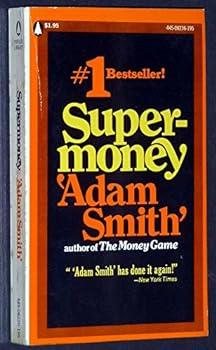
The “Sleep Well at Night” Portfolio
Posted May 07, 2024
James Altucher
I met a guy who was a consultant for one of the political parties. He was going to help their Presidential candidate with social media and “messaging”.
We were talking a bit more about what messaging even meant and something he said reminded me of something. “It sounds like the Dole-Clinton campaign.”
“Whoa,” he said, “that was before my time.”
“That was in 1996,” I said.
“I was born in 1996,” he said.
I left the conversation. Not because he was very young. But because I was disappointed in him.
He was talking like he was an expert. And perhaps he does qualify somehow as an expert. I mean, he’s working on helping someone become (or remain) the President of the United States.
But he didn’t know his basic history. Bob Dole and Bill Clinton were almost exactly alike on issues. It was perhaps the last critical campaign that was actually decided by messaging (although it was pre-destined that Clinton would win by a landslide).
How could he not know it? Which means he won’t know about Dukakis in a tank, or Bush’s “read my lips”. Or Muskie crying in the primaries in 1972, or Eugene McCarthy in 1968. Or Hoover’s messaging of the status quo in 1928. And on and on. Back to the first seriously contested election in 1800 when there were serious issues that John Adams might turn into a dictator if not for Jefferson campaigning against him for President.

(Dukakis probably lost the 1988 election because of this photo of him in a tank)
It’s not that someone should know these things. Most people could care less and shouldn’t really know these things unless they enjoy reading about election history.
But this guy worked at the highest levels of electioneering.
If you don’t know the history, then you are not an expert.
Instead of standing on the shoulders of giants, you are just standing on the ground and have to make it up as you go along.
That is not an expert. That is a failure.
Understanding Investing
Of course, I’m going to say: it’s the same thing for investing.
Now, if you don’t know how the market reacted every year of the Great Depression, or what happened in the months following the crashes of 87, 97, 9/11 and the Pandemic then don’t worry about it.
You don’t have to be a professional investor to invest. But to be a professional investor you have to know about investing both vertically and horizontally.
Vertically: know the history. Read the biographies of Warren Buffett, Bernard Baruch, Peter Lynch, John Bogle, etc. Read Famous First Bubbles by Guber and How to Be a Stock Market Genius by Joel Greenblatt (an excellent book despite the corny title).
Read about Michael Milken and the events leading up to the crash in 1987. Read Victor Niederhoffer’s Education of a Speculator and Jack Schwager’s Market Wizards.
 (A classic written in the early 70s)
(A classic written in the early 70s)
Horizontal: here are the strategies you should be knowledgeable enough to invest in:
- Value investing
- Growth investing
- Bond investing
- Merger arbitrage
- Convertible arbitrage
- Quantitative arbitrage
- Options (trading volatility, trading “the Greeks”)
- Private equity investing
- Closed end fund arbitrage
You should understand the difference between “cigar butt” value investing (Buffett pre-1962) and value investing (which is another way of saying what is the difference between Buffett and Munger).
Understand why some of the greatest hedge funds had massive blowups (not just Long-Term Capital but even Soros and Julian Robertson’s Tiger Funds in 2000 and many funds in 2008).
Understand why most hedge funds are rip-offs and what things to be careful of when your bank manager pitches you on the latest mutual funds.
What is the relationship between interest rates and stocks? Between inflation and gold? (they aren’t correlated).
Perhaps most important, understand risk management. Maybe even understanding the history of money and why futures trading, or even stock investing, even exists?
My dream is to teach a free course on all of these things and much, much more to all of the readers of this newsletter.
I have been obsessed with bettering myself as an investor for the past 24 years. And the reason I became obsessed is because I realized that without this knowledge, and because I had no mentor in the space or any reliable guide to help me, I was doomed to go broke over and over.
Again, I’m not saying YOU should know all of these things. But I personally like to know them and then write about them.
I’ve been writing about investing since 2002. I’m really grateful that people thought enough of what I was writing that I ended up writing for The Financial Times for many years, then the Wall Street Journal, CNBC, Forbes, Yahoo Finance, and about half my books are investment-related.
I’ve had so many adventures on this path and have met so many interesting people.
Understanding True Diversification
The reason I write this is that it took me a long time to understand true diversification.
It’s not just buying an oil company and a tech company (for instance, Exxon and Microsoft) and saying you are diversified.
Those two stocks are mostly correlated.
I consider myself diversified when I have two things going for me:
A) I am investing in uncorrelated STRATEGIES. For instance, going long value stocks is one strategy. And trading “country arbitrage” (going long US and shorting Canada, for instance) is another strategy.
B) I like to invest in potential “moonshots.”
What!? How can investing in something I think will go up 1000% be considered “low risk”?
Because if I do the research and think some asset (a stock, a crypto, an option, a commodity, etc.) has the potential to go up 1000% or more (I consider a “moonshot” something that has the potential to go up 10x AT LEAST) then:
A) I don’t have to invest as much.
B) I can sleep well at night knowing I am mostly in cash and yet my money is working for me.
Being in cash means I have dry powder for other strategies and opportunities when they come up. And I also have dry powder for when the market crashes.
Also, I sleep better at night knowing that nothing can really affect me.
And if I pick my spots carefully, I can and will return MUCH better than the market.
Which means sleeping better at night.
History helps here. Bernard Baruch said in 1910, “I always bought too early and sold too soon.” In other words, you can’t time the market, and you have to have a positive mindset so you are able to focus on opportunities more than you focus on regrets.
A lot of people are just taking their first steps in investing. It’s an exciting thing to dip your toes into investing. You learn about the world, about industries, and about how growth and innovation happen.
You get a taste of what it’s like to make money through your own hard work instead of through a steady salary. The market is a jungle and with the right guidance you learn to survive that jungle.